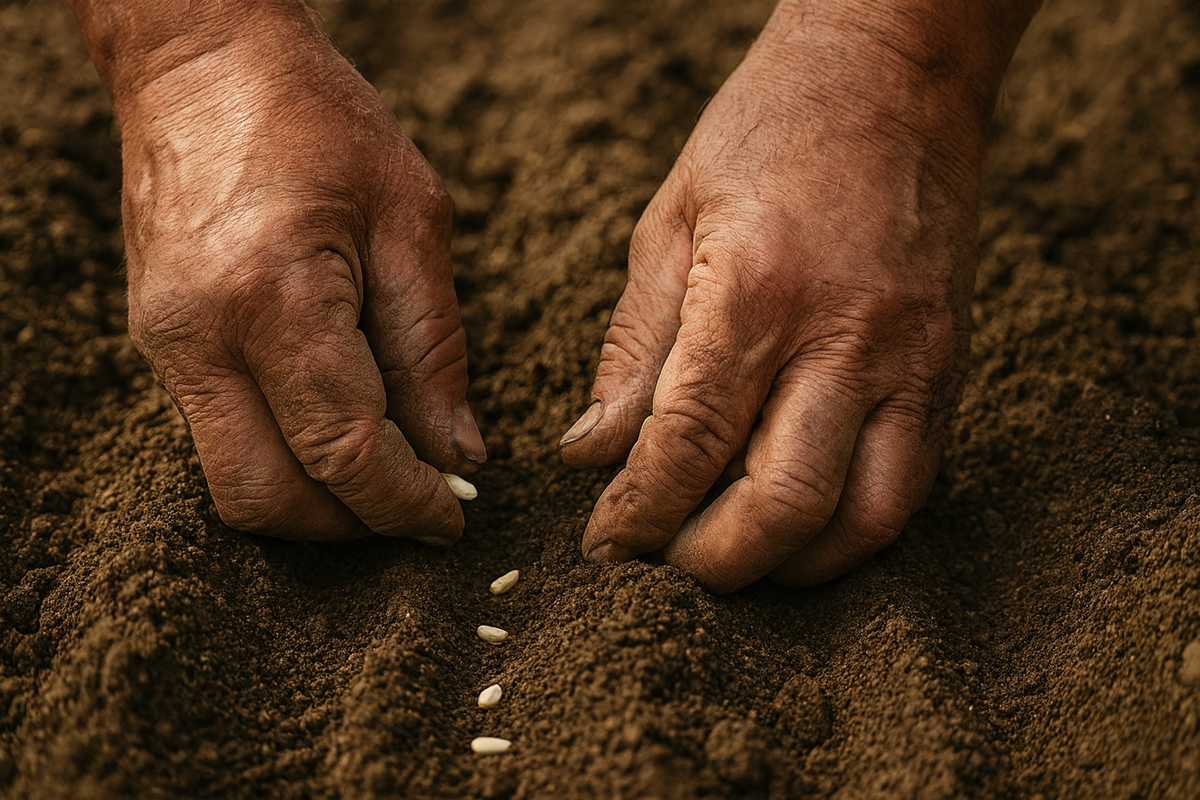Seeds We Choose to Plant
There’s a difference between fighting for something and fighting against someone. Outsiders say we must choose bloodshed or revenge. Eastern Washington knows better: we choose the path of neighbors who plan to live together tomorrow.

Any farmer in the Palouse will tell you: what you plant in anger rarely feeds anyone. Yet lately, voices from far beyond our wheat fields and basalt ridges are urging us to believe otherwise, that bitterness and rage can yield a crop worth having.
They are wrong.
Here in Eastern Washington, we know something about tending. The land does not care how you vote. Wildfire season threatens every home. When the Spokane River runs low, we are all downstream together. What we plant today, in our soil, in our conversations, in our hearts, determines what our children inherit.
Right now, there are voices from outside trying to plant something in us. Some want us to take joy in the troubles of others. Some insist we must seek revenge. Both are barren fields. Both ask us to become the very thing we say we oppose.
But we still have a choice.
Walk through any small town on a Saturday morning. Neighbors disagree about plenty: water rights, school funding, immigration policy. Yet they still work side by side at the food bank. They still wave on country roads. They still show up when a barn burns or a harvest is threatened. This is not blind optimism. It is practical wisdom born of knowing we are co-stewards of this place, and that what we do next matters.
The people who sow division here will never live with the harvest. They will not be here during the next economic downturn, when we need one another for infrastructure projects, or when our children need good schools no matter what their parents believe. They are tourists in our anger, harvesting clicks and profiting from chaos they will never clean up.
We are not tourists. We are residents. We are invested.
That investment means something. It means seeing the nurse who may disagree with us politically as the one who will still care for our parents in their final days. It means recognizing that the teacher whose personal beliefs make us wince is still shaping young minds we care about. It means accepting that the farmer with the yard signs we dislike is still feeding families, including ours.
None of this means we sit back or stop fighting for what we believe in. Eastern Washington has never been a place that keeps quiet when something matters. We speak up about threats to our water, our economy, our way of life. We organize, we vote, we make ourselves heard.
But there is a difference between fighting for something and fighting against someone. There is a difference between passionate advocacy and feeding on someone else’s anger. There is a difference between standing up for our values and letting outsiders define who we are.
The voices from elsewhere want us to believe we only have two choices: celebrate recent bloodshed or seek revenge. We have always known better. We know there is another path, the path of people who plan to be neighbors tomorrow no matter what happens today.
Any rancher will tell you that good fences make good neighbors not because they keep people apart but because they help everyone understand where they stand. What we need now is to know where we stand. Not in some national controversy designed to profit from division, but here in the place we call home.
We stand with our communities. We choose the long game. We refuse to let others reap anger from our soil.
The seeds we plant, in our conversations, in our community meetings, in the way we treat one another at the grocery store, will shape what grows here long after the spotlight moves on.
We can choose to plant understanding instead of bitterness, bridges instead of walls, hope instead of hate. We can choose to be the neighbors our communities need: people who build instead of tear down, stewards who tend instead of destroy.
The choice is ours. The harvest will be too.